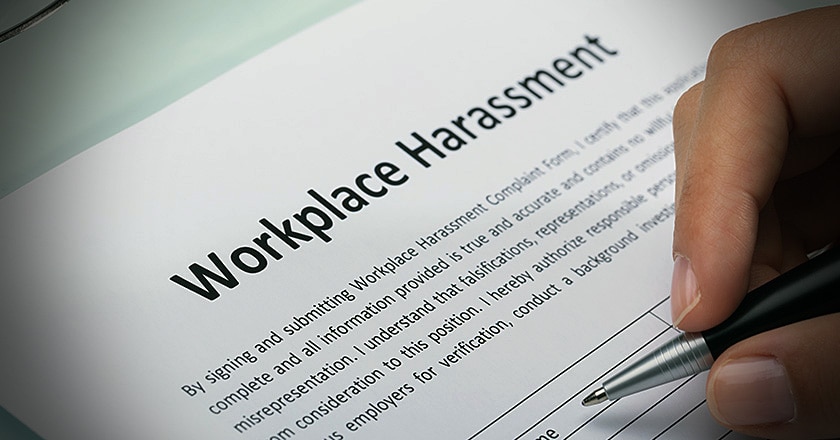
No individual wants to face harassment. Especially at work. However, California law does not protect against all forms of harassment. In order for harassment to be considered unlawful, the harassment must have occurred on the basis of race, color, religion, sex, gender, gender identity, gender expression, sexual orientation, marital status, national origin, ancestry, mental and physical disability, medical condition, age, pregnancy, denial of medical and family care leave, or pregnancy disability leave, and/or retaliation for protesting illegal discrimination.
In order to prove a case of harassment under California law a plaintiff must show they are (1) a member of a protected class, (2) they were subjected to unwelcome harassment, (3) the harassment was based on a characteristic found within the protected class, and (4) the harassment was severe enough or sufficiently pervasive to alter the conditions of employment and create an intimidating, hostile, or offensive work environment. Thompson v. City of Monrovia (2010) 186 Cal. App. 4th 860, 876.
Below are some specifics regarding harassment of which California employees should be aware
In a recent California Supreme Court case, the court held that biased personnel actions can play a role in harassment claims by: (1) contributing to harassment by communicating a hostile message, and (2) evidencing discriminatory animus on the part of those engaging in offensive behavior. See Roby v. McKesson (2009) 47 Cal. 4th 686.
A single incident of harassment may, in some instances, be sufficient to support a harassment claim depending upon its severity. See Ellison v. Brady (9th Cir. 1991) 924 F.2d 872, 878 (“the required showing of severity or seriousness of the harassing conduct varies inversely with the pervasiveness or frequency of the conduct”); Myers v. Trendwest Resorts, Inc. (2007) 148 Cal.4th 1403, 1421 (physical groping of plaintiff by itself constitutes actionable conduct); Hughes v. Pair(2009) 46 Cal.4th 1035, at 1049 (isolated incident may qualify as “severe” when it consists of physical assault or threat thereof).
The status of the harasser relative to the aggrieved employee is relevant to determining whether harassment exists. To that end, supervisors, or those who are able to exert control over the harassed employee are subjected to a heightened standard. “Thus, a single incident of harassment by a supervisor,” may well be sufficiently severe so as to alter the conditions of employment and give rise to a hostile work environment claim.” Brooks v. City of San Mateo (9th Cir. 2000) 229 F.3d 917, at 927, fn. 9; Quantock v. Shared Mktg. Services, Inc. (7th Cir. 2002) 312 F.3d 899, 904 (company president’s propositioning of plaintiff on single occasion deemed sufficient to give rise to a claim for harassment); Dee v. Vintage Petroleum, Inc. (2003) 106 Cal.4th 30, 35 (single ethnic slur by supervisor creating abusive working environment).
Under the law, an employer “shall take all reasonable steps to prevent harassment from occurring.” Government Code § 12940(k). It is unlawful employment practice for an employer to fail to take all reasonable steps necessary to prevent discrimination and harassment from occurring. As such, if the employer fails to take such reasonable steps, the employee would have a separate, distinct cause of action for failure to prevent harassment.
One such reasonable step, and one that is unquestionably required in order to ensure a discrimination-free work environment, is a prompt investigation of the discrimination claim.
Learn more about harassment here.
The information you obtain at our website ( www.pairavilaw.com ) is not, nor is it intended to be, legal advice. You should consult an attorney for advice regarding your situation as each case is different. We invite you to contact us to discuss the specifics of your case, however, contacting us does not create an attorney-client relationship nor guarantee acceptance of your case. Please do not send any confidential information to us until an attorney-client relationship has been established.
We are passionate about protecting the rights of mistreated employees.
Call : 310.789.2063
[email protected] Mon – Fri 09:00-17:00
